For decades, Israel has been an established world leader in medical cannabis R&D, due to the pioneering work of Hebrew University of Jerusalem Professor Raphael Mechoulam. In 1964, the renown organic chemist was the first researcher to identify cannabis’ THC compound, the chemical known for causing a “high,” laying the foundation for scientific research on cannabis and its use in modern medicine.
In the years since, Israel became among the few countries with a government-sponsored medical cannabis program, and was the first in the world earlier this year to approve a vaporizer as a medical device for the use of cannabis extracts and formulations.
Though the country’s efforts to lead in other areas – like its big plans to become a top medical cannabis exporter with an estimated $1 billion in revenue per year – have stalled due to political wrangling, Israeli cannabis startups have stepped ahead with cutting-edge, smart devices and products for cannabis cultivation, consumption, measurement, and storage.
And their sights are set on the global cannabis market, expected to be worth some $32 billion by 2022.
Oren Todoros, CEO of the branding firm CannaImpact, tells NoCamels that mixing cannabis culture with IoT (the internet of things) “has the potential to lift the industry to new heights.”
“Due to this rapid shift towards smart connected devices, growers and consumers are increasingly turning to IoT technologies, essentially comprising of sensor devices, artificial intelligence (AI) and data analytics, to bring new efficiencies to the way we grow and consume cannabis,” says Todoros, whose firm works with Israeli startup Kassi Labs, which developed a smart storage hub solution for marijuana.
Yona Cymerman, a co-founder of Can Innovation Finder (CIF), a new initiative that hopes to connect North American cannabis growers with blue-and-white tech solutions, says “the licensed producers we work with are always interested in hearing about innovative designs and technologies being developed to improve the consumer experience, and have expressed a lot of interest in devices and gadgets.”
“Israeli entrepreneurs have demonstrated great creativity in developing and designing their products, adopting concepts from other industries such as the sports market, and are aware of, and investing in the aesthetics of their products, which makes them all the more attractive for investment purposes,” she tells NoCamels.
From vaporizers and inhalers to growing environments and all-in-one storage solutions, we’re taking a closer look at seven companies that developed forward-looking “smart” gadgets for a next-generation cannabis experience and data analysis.
Kassi
Founded by Ido Havilio, cannabis startup Go On Green recently launched the Kassi, a medical short and long-term storage hub solution built with IoT connectivity for tracking consumption of medical cannabis and maintaining the plant’s freshness and potency, the company says. The holistic solution aims to take medical cannabis consumption, monitoring and storing into the 21st century, through the integration of multiple functionalities into one single device.
Kassi consists of a storage hub, a digital scale, a built-in grinder that can store up to four grams and a monitoring app.
The device’s sensor delivers real-time data on temperature and humidity levels directly to consumers’ mobile app. Integrated into the device is also a two-way humidity pack that adjusts and optimizes humidity levels when necessary, while the embedded smart scale notifies the user each time quantity within the Kassi changes.
Users can log specific strains, time of consumption, method, the effect of treatment, location and time of purchase, therefore keeping them up with the potential need to repurchase, and their overall daily dosage.
Havilio told NoCamels in a phone interview last month that the idea behind the Kassi was to introduce a “holistic solution to the market instead of users having to buy everything separately.”
Kassi “brings the cannabis experience into the 21st century,” he says.
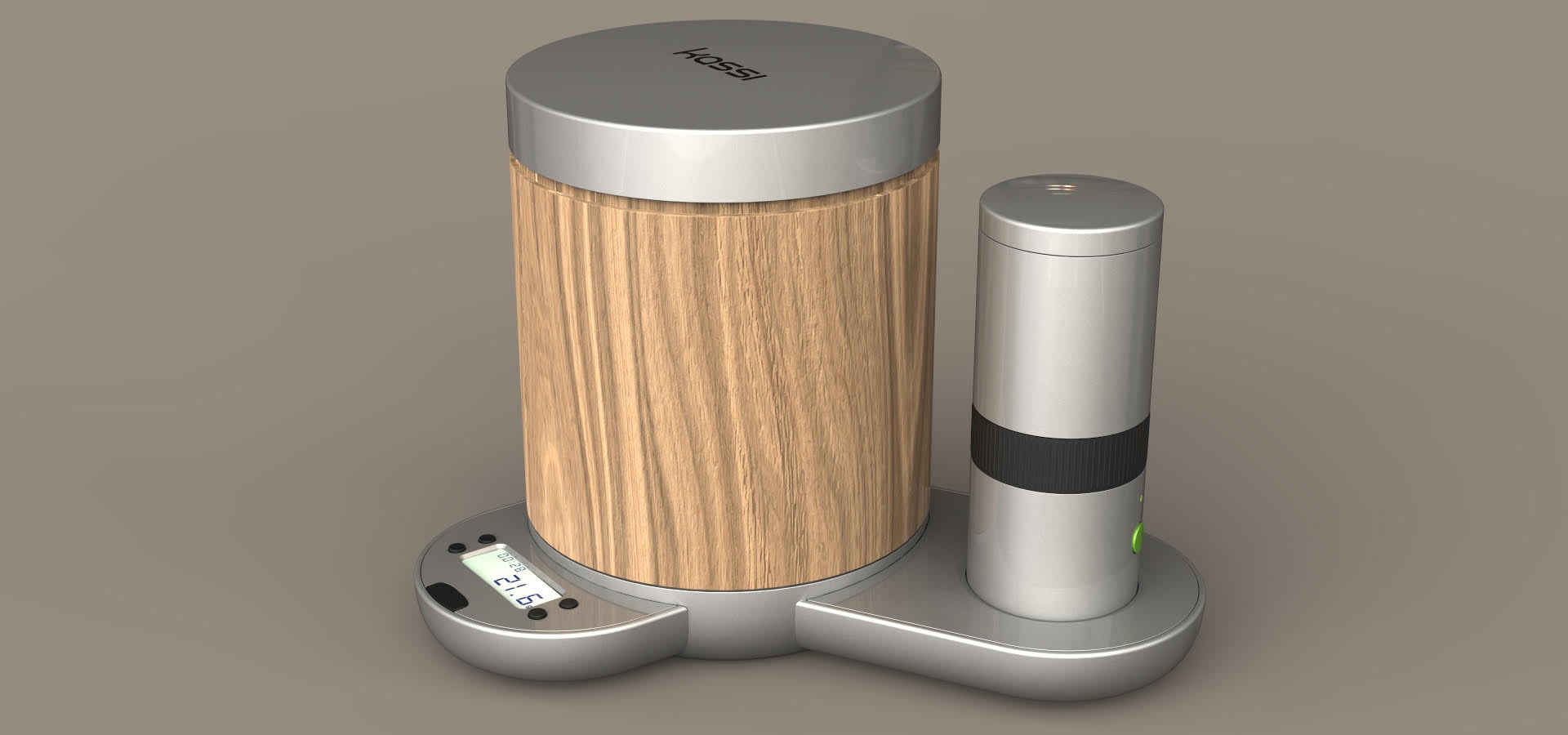
Kassi. Courtesy
CannabiDose
CannabiDose, a Kfar Saba-based startup, develops oral delivery systems for medical cannabis-based products including oils, liquids, and ointments.
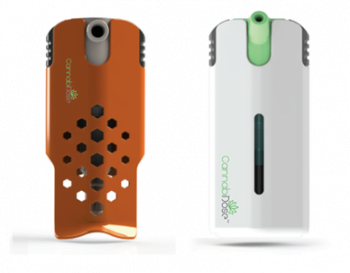
CannabiDose. Courtesy
Its two systems are the CannaDose, a pocket-sized device that looks similar to an asthma inhaler and that delivers controlled, accurate doses, and the CannaMist Sport, which provides a controlled dose of cannabinoids in a fine, measured mist for sports enthusiasts and professional athletes.
CannabiDose’s products and solutions “support the usability, delivery, manufacturing, storage, and transportation of medical cannabis,” the company says.
While using the same outer shell design, customers can input varying pouches including “alternative cannabinoid profiles, strengths, and supplemental ingredients,” CannabiDose says.
Seedo
Developed by Israeli company Eroll Grow Tech, Seedo is the first fully-automated grow device for medical cannabis. Remarkably resemblant of a mini-fridge, Seedo’s at-home growing device is powered by algorithms and monitored via a smartphone application, making for an independently run cannabis growing machine. Seedo holds a medical cannabis R&D license from the Israeli Health Ministry.
The device can grow the cannabis plant from seed stage without human intervention over the course of 90 days, according to the startup. It weighs 55 pounds (25kg) and measures 40 by 24.4 by 24.4 inches (101 x 62 x 62cm), with each unit listed at a price of $2,440. According to the company, over 3,500 orders have been placed so far during a pre-sale stage.
Conceived at the outset as a device for recreational growth, the startup is now working on a prototype to grow plants for medicinal purposes according to physician instructions, which it expects to complete in the first quarter of 2019.
Sign up for our free weekly newsletter
SubscribeIn September, the company raised $2 million from Cannabics Pharmaceuticals, a US-Israeli company that develops personalized cannabinoid medicine focused on cancer and its side effects. The two companies signed an agreement a month earlier to develop the first controlled device for growing medical cannabis at home, according to a previous statement.
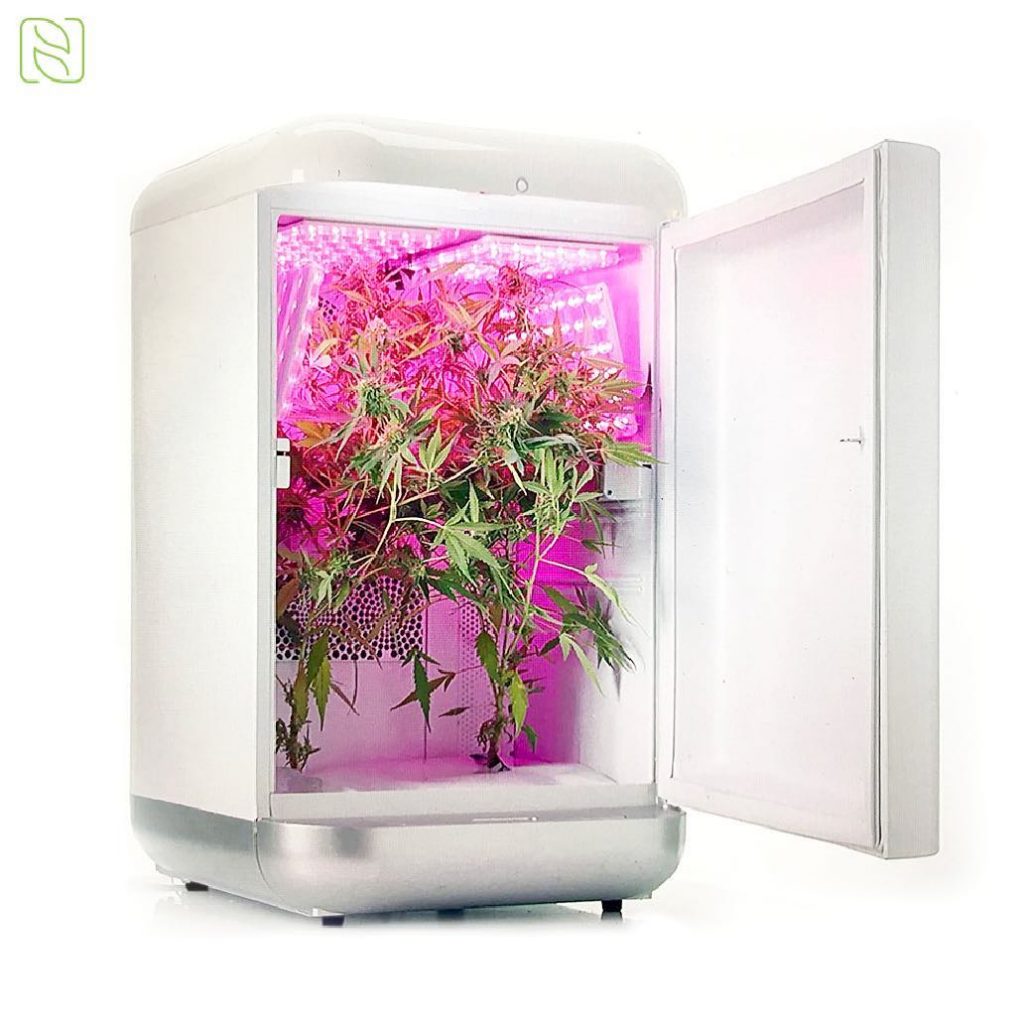
Seedo device via Seedo’s Facebook page
Syqe Medical
Founded in 2011 by Perry Davidson, Syqe Medical developed a pocket-sized inhaler of medical cannabis that provides precise dosage to patients, that can also be remotely administered from doctors. The inhaler utilizes selective 100 microgram dosing precision, real-time thermal and flow controllers, lung interfacing and wireless connectivity that serves physicians, researchers and health care entities. The company has raised $32 million to date.
The company’s inhaler comes in two variations – one for individuals and one for medical institutions. The hospital version, named Syqe Inhaler Exo, consists of selective-dose cannabis inhaler for professional healthcare use, featuring a caregiver interface. “For doctors, the inhaler solves the problem of prescribing plants for smoking, and offers a solution for patients in that, for the first time, they will be able to receive a precise dose of medical cannabis,” said Syqe Medical chairman Eytan Hyam in a statement.
Syqe Medical made headlines in 2016 after signing a cooperation agreement with Teva that ensured the exclusive marketization and distribution of the company’s inhaler in Israel.
In addition, the Syqe inhaler has been used for more than a year at Haifa’s Rambam Hospital with the approval of the Health Ministry, making it the first hospital in the world to prescribe cannabis as a standard medical treatment. Syqe Medical has also recently received Good Manufacturing process (GMP) approval from the health ministry. The company now hopes to begin marketing its product soon through pharmacies, according to a Globes report.
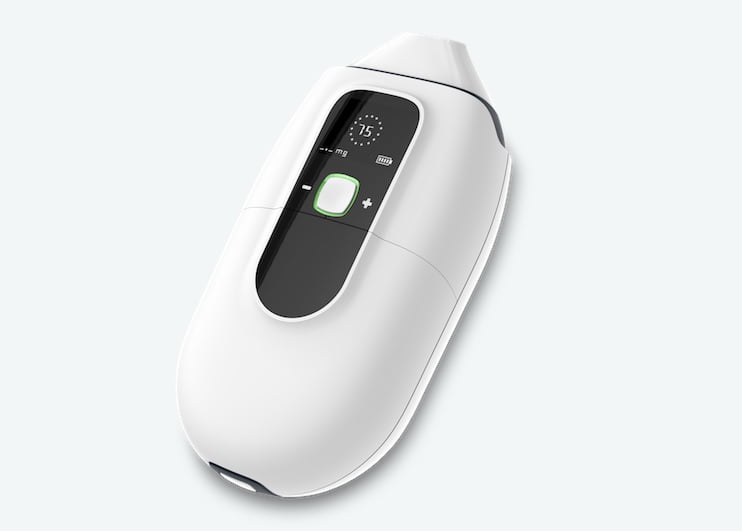
GemmaCert
Co-founded in 2015 by Dr. Guy Setton and Prof. Oded Shoseyov, biotechnology firm Gemmacert developed a home kit that is used to test the active ingredients content and cannabinoid levels of a flower bud. The device enables growers, dispensaries, labs, and home users to test and verify the composition and potency of an unlimited amount of flowers, without resorting to lab testing. Readings are then delivered to a proprietary smartphone application.
The GemmaCert patent-pending device collects spectral data from cannabis specimens which are inserted in the device. Optical sensors scan each specimen, which is then analyzed on the GemmaCert secure cloud server. Composition and potency readings are transmitted to the user’s smartphone in less than a minute, with the flower’s efficacy and commercial value remaining completely unaltered, the company says. The analysis is made possible through a combination of three technologies: image analysis, data analytics, and spectrometry− an FDA-endorsed technology.
The device was designed by Eran Lederman, a senior lecturer at Jerusalem’s Bezalel Academy of Design. “I settled on a design influenced by the Erlenmeyer flask. I was attracted to this because it is an archetypical, well-known image recognized as belonging in a laboratory,” he said in a statement.
To date, the company has raised a total of $5.3 million in funding over three rounds, according to Crunchbase. In June, the company announced the opening of a new round of funding, seeking nearly $6 million to push commercialization efforts for its cannabis composition and potency testing device, Potnetwork reported.
HiGrade
Founded in 2016 by Asaf Levy and Assaf Gavish, HiGrade developed a plant testing device and analytics application for the medical cannabis industry which it calls “the first artificially-intelligent cultivation expert.”
Through the use of machine learning technology, users can quickly identify the quality, strain, and other critical traits of their plants on their phone. Patients snap a photo of the plant, which is then analyzed by HiGrade’s patent-pending algorithms to detect the plant’s status – health, quality and potency – thus transforming the phone into “a powerful microscope.”
Levy, CEO of HiGrade, tells NoCamels that the company’s goal is “to provide users with deep insights about their medicine.”
“Although cannabis research and regulation are progressing rapidly, basic knowledge such as the potency of each bud is still not accessible to patients. With our innovative algorithms, we provide a first-of-its-kind potency testing tool which is fast, low-cost and non-destructive,” he explains.
The system is able to analyze plants across different strains, cultivation methods and capturing devices. Deep learning algorithms detect microscopic elements and specific patterns on the plant and assess the concentration of THC. “The democratization of knowledge through technology is key to the sustainable growth of this budding industry,” Levy says.
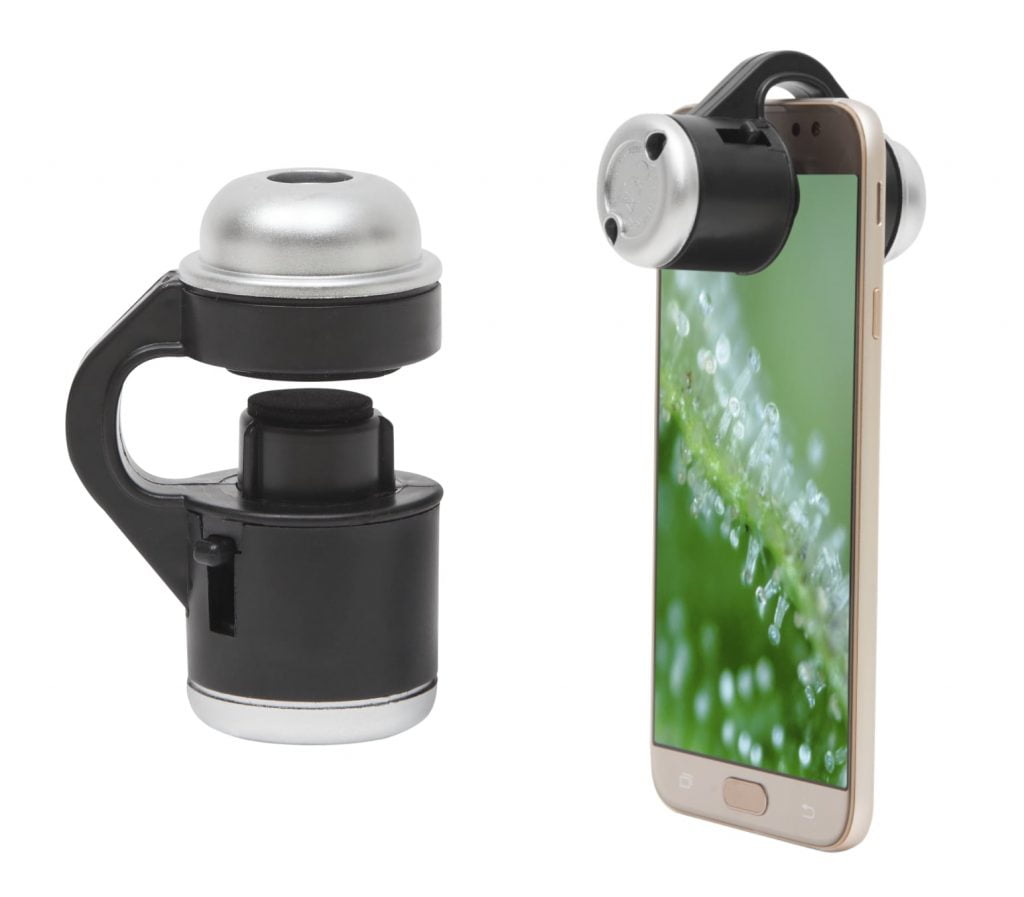
Scope next to phone, HiGrade. Courtesy
VapePod by Kanabo Research
Kanabo Research, an R&D company that provides clinical solutions for the extraction and vaporization of medical cannabis, developed the VapePod proprietary vaporizer, a medical inhaler of cannabis extracts and formulations.
VapePod’s CCELL technology embeds the heating coil 360 degrees within the ceramic core, to ensure uniform heating and consistent performance of extracts and formulations, the company says. The software works in synergy with Kanabo Research’s formulations of medical cannabis extracts.
In March, the product was approved as a medical device by the Israeli Ministry of Health in a move that made Israel the first country in the world to approve a vaporizer as a medical device for the use of cannabis. Kanabo said it has started pre-clinical trials of Kanabo’s proprietary formulations that focus on sleep disorders and in the future for patients suffering from post-traumatic stress disorder.
SEE ALSO: Israel First Country In The World To Approve Medical Cannabis Vaporizer
In April, the company announced that it was partnering with Constance Therapeutics, a US-based medical cannabis extraction company to establish a cannabis cultivation farm in Europe. According to the deal, Kanabo Research and Constance Therapeutics will operate the farm as well as manufacturing capabilities of cannabis active compounds – THC and CBD – to be used in an array of medical treatments and chronic ailments such as insomnia, PTSD and chronic pain. Constance Therapeutics is set to market Kanabo Research’s solutions in the US.
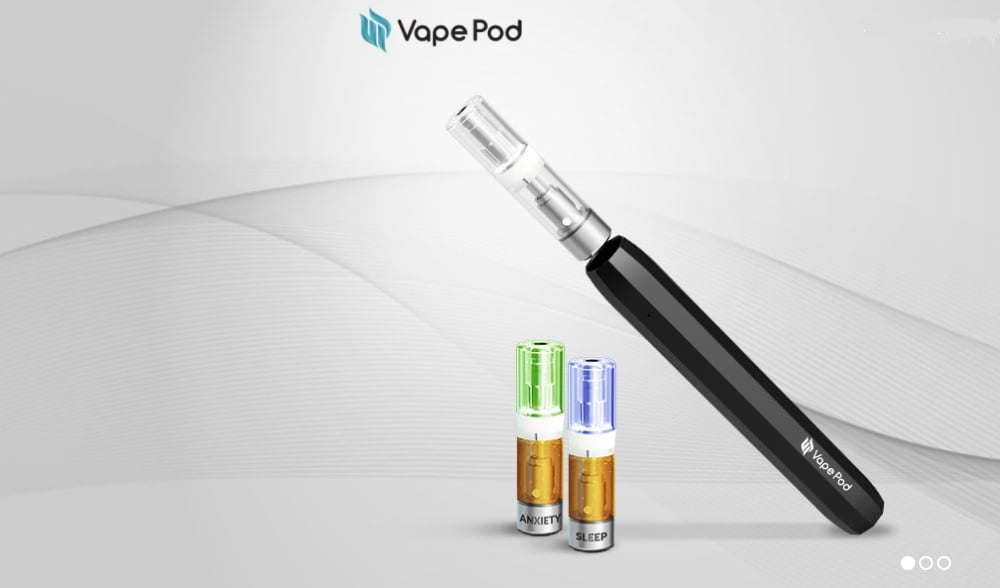
Kanabo Research’s VapePod, http://www.vapepod.com/
Related posts

Editors’ & Readers’ Choice: 10 Favorite NoCamels Articles

Forward Facing: What Does The Future Hold For Israeli High-Tech?

Impact Innovation: Israeli Startups That Could Shape Our Future




Facebook comments